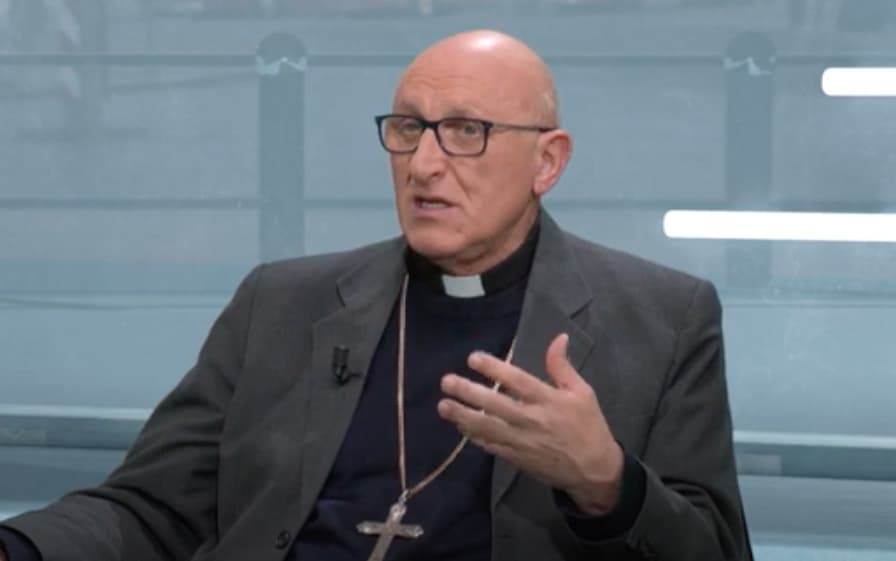ROME – Earlier this week Bishop Dominique Rey of the Diocese of Fréjus-Toulon announced his resignation three years early at the request of Pope Francis following an apostolic visitation of his diocese.
The 72-year-old bishop, who has served in Fréjus-Toulon since 2000, has been at odds with Rome in recent years, largely over the restriction of the Traditional Latin Mass and discernment to the priesthood and religious life of individuals who adhere to the so-called “Old Rite.”
An initial visitation of the Fréjus-Toulon diocese was conducted in 2022, resulting in the postponement of the diocese’s priestly ordinations, originally scheduled for the June 29 feast of Saints Peter and Paul.
Subsequently, a full apostolic visitation of the diocese began in 2023, and Bishop François Touvet was named coadjutor of Fréjus-Toulon, a position typically assigned to someone set to take over the post of bishop once the sitting prelate dies or resigns, and assumed oversight of the areas of administration, clergy, and religious life.
In a Jan. 7 press release, Rey said that after a year of working with Touvet, the Vatican’s nuncio to France, Archbishop Celestino Migliore, “informed me that the Holy Father was asking me to resign my office.”
This happened, he said, “without my having learned of any new elements in relation to those which motivated the designation of the coadjutor bishop.”
“Faced with misunderstandings, pressures, and controversies which are always harmful to the unity of the Church, the ultimate criterion of discernment remains for me that of obedience to the Successor of Peter,” Rey said in the press release.
Rey said he has always sought to respond to Pope Saint John Paul II’s call to the New Evangelization, and to Pope Benedict XVI’s emphasis on welcoming and forming priestly vocations.
He said he has also sought to follow Pope Francis’s own pastoral instructions, and that in this sense, “I have accepted, in this case, to hand over the pastoral charge that had been entrusted to me in the year 2000 by John Paul II.”
A member of the Emmanuel Community, Rey will leave the Diocese of Fréjus-Toulon having spent almost 25 years in the post, and will retire at the age of 72, three years prior to the traditional retirement age of 75 for Catholic bishops and cardinals.
This move comes after years of tension between the diocese and Rome, with Cardinal Jean-Marc Aveline of Marseille making a November 2020 “fraternal visit” of the diocese that largely focused on vocations, and which apparently identified numerous priests in irregular canonical situations, including many related to abuse allegations.
Questions were then raised about the high number of priests in his diocese, and the type of candidates he was admitting to the priesthood.
When the Vatican in a seemingly unprecedented move asked Toulon to halt its ordinations in June 2022 while providing no reason for the decision, it left the candidates in shock and in vocational limbo. Since then, nine of the 10 men have been ordained.
Traditionally considered to be among the most flourishing dioceses in France, annually yielding numerous vocations, Toulon was known for its welcome of new movements and priests from other areas, including those attached to the Traditional Latin Mass, which was restricted by Pope Francis in 2021.
Rey has been supportive of the so-called “Old Rite,” and was critical of the pope’s decision to restrict access to it.
When the Vatican ordered an apostolic visitation in February 2023, Archbishop Antoine Hérouard of Dijon was tapped to lead it. By November of that year, Touvet had been appointed as coadjutor.
In a listening session with diocesan clergy in September 2022, Rey said several changes had been made as a result of the Vatican’s inquiry, and that he was in conversation with the Vatican’s Dicastery for Bishops.
Among the changes Rey said took place was an inventory of communities present in the diocese that had different canonical, pastoral and spiritual perspectives.
The reception of new communities into the diocese was also suspended, and Pope Francis’s legal instruction Traditionis Custodes restricting the Traditional Latin Mass was enforced, while the various groups welcomed into the diocese were also visited.
Rey announced that new priests would also first have to be vetted by the Presbyteral Council, which would rule either in favor or against their admittance into the diocese.
In an interview with Famille Chrétienne this week, Rey said his relationship with Touvet was “pacific,” and that his departure as bishop was “a trial and a moment of self-questioning.”
“I was criticized for welcoming too many communities or vocations to the priesthood and religious life, particularly from the traditional world, as well as for dysfunctions in the economic and financial management of the diocese,” he said.
However, Rey insisted that there is always risk involved when launching new projects, and he admitted that “I sometimes lacked discernment or guidance.”
“However, when dysfunctions were identified, I always took the necessary canonical and administrative measures,” he said.
In a separate interview with French daily Le Figaro, Rey said that Rome’s apparent distrust of the traditionalist camp in the Church, including many of the groups he welcomed into Toulon, is aimed mostly at groups “closed in on themselves” and which “cling to ritual in a way that is sometimes formalistic, not well adjusted.”
Rey said it was his intention to continue his service of evangelization, “even if the concrete ways are not yet completely decided.”
Follow Elise Ann Allen on X: @eliseannallen














